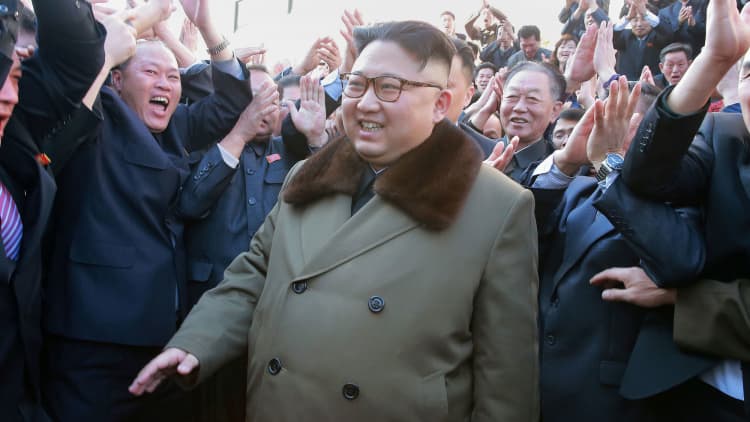
Beijing, not Damascus, was likely on President Donald Trump's mind when he ordered 59 Tomahawk missiles to hit a Syrian airfield last Thursday.
The fact that the strikes took place as Trump and Chinese President Xi Jinping dined on steak and sole fish was no coincidence, Dane Chamorro, senior partner and head of ASEAN at Control Risks, told CNBC on Monday.
Trump said the missiles were in retaliation to a chemical weapons attack that was believed to be the work of Syrian dictator Bashar al-Assad, but "Syria was possibly the least important of the fall-out from this," Chamorro said.
Instead, Trump used the move as a diplomatic power play to remind Beijing who's boss, Chamorro continued.
Trump is trying to tell the mainland "there's a new sheriff in town, I'm a little unpredictable and bad things will happen, things that you don't like unless you get Kim 3.0 under control."
North Korean leader Kim Jong-un is the son of former ruler Kim Jong-il and the grandson of Kim Il-sung, commonly referred to as the country's founding father.
Trump has long admonished the mainland for failing to use its strategic leverage over Pyongyang in order to curb the rogue nation's nuclear hopes. In early April, Trump said he was willing to take unilateral action on North Korea if China failed to help.
Sunday's dispatch of the USS Carl Vinson Carrier Strike Group closer to the Korean Peninsula was another warning to China, Chamorro noted. It was a strong declaration to Beijing that the era of U.S. patience regarding North Korea is over, he continued.
Both the strikes and Sunday's development could incentivize Beijing to get Kim under control, Chamorro said — a popular idea among policy experts.
Pyongyang is a "bad toothache" for Beijing but in order for Xi to take more forceful action, increasing the toothache's pain is key, former CIA Director Michael Hayden told South Korean media earlier this month.

